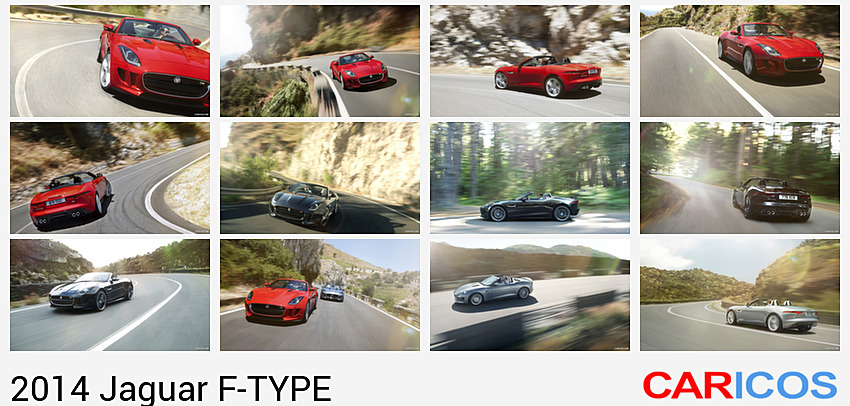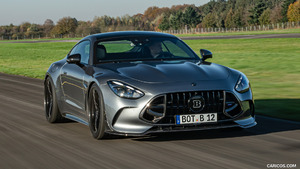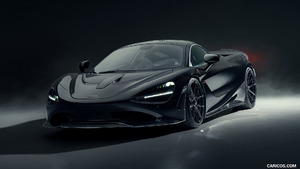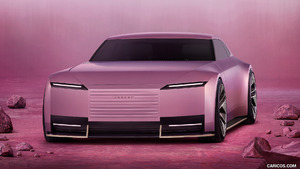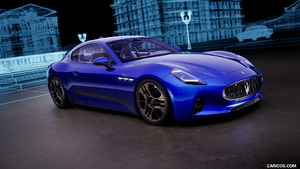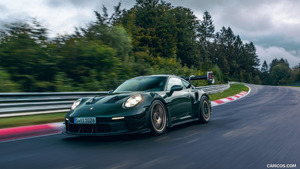New Jaguar F-TYPE
The new Jaguar F-TYPE represents a return to the company's heartland: a two-seater, convertible sports car focused on performance, agility and driver involvement. The F-TYPE is a continuation of a sporting bloodline that stretches back more than 75 years and encompasses some of the most beautiful, thrilling and desirable cars ever built.
The engineering ethos underpinning the F-TYPE is centred on Jaguar's industry-leading expertise in the use of aluminium. Featuring the most advanced iteration of Jaguar's acclaimed rigid and lightweight aluminium architecture to date, the F-TYPE has ideally balanced weight distribution that allows its involving rear-wheel drive dynamics to be explored to the full. Utilising extensive Computer Aided Engineering programmes, the attention to detail involved in the F-TYPE's creation even extended to the development of a new, lighter, aluminium front subframe.
In order to maximise the benefits of its advanced structure, the F-TYPE features all-aluminium double wishbone front and rear suspension and a quick-ratio steering rack for ultimate responsiveness. The aluminium architecture has been optimised to provide the stiffest possible underpinnings for the suspension with rigidity gains of more than 30 per cent in key areas compared to any other Jaguar application.
Three variants will be available at launch - F-TYPE, F-TYPE S and F-TYPE V8 S. Each is distinguished by the power output of its supercharged petrol engine with all engines featuring stop/start technology to maximise efficiency.
A new 3.0-litre V6, developed from Jaguar's highly acclaimed 5.0-litre V8, is available in either 340PS or 380PS variants, powering the F-TYPE and F-TYPE S respectively. Both applications exhibit the same free-revving, willing nature that encourages the enthusiastic driver to explore the full extent of the engines' abilities.
The V6 models are joined by a newly developed member of Jaguar's V8 engine family. Producing 495PS and 625Nm of torque in the F-TYPE V8 S model, it has an astonishing torque-to-weight ratio of 375Nm/tonne, accelerates to 60mph in 4.2 seconds (0-100km/h in 4.3 seconds) and on to an electronically limited top speed of 186mph (300km/h) while emitting 259g/km of CO2.
The 380PS V6 F-TYPE S covers the 0-60mph sprint in 4.8 seconds (0-100km/h in 4.9 seconds) and has an electronically limited top speed of 171mph (275km/h), with CO2 emissions of 213g/km.
The 340PS V6 F-TYPE accelerates to 60mph in 5.1 seconds (0-100km/h in 5.3 seconds) and on to an electronically limited top speed of 161mph (260km/h), while emitting just 209g/km of CO2.
An active exhaust system, which is standard on the S and V8 S models, adds another dimension of driver-engagement. Valves in the exhaust system open under load from 3000rpm which allows the exhaust note to build to a thrilling crescendo at the redline.
The F-TYPE has a set of eight closely-spaced, sporting ratios in its Quickshift transmission, giving greater driver control. The V6-powered S model also includes a Dynamic Launch feature, which optimises acceleration from rest.
The company's eye to the future is encapsulated in the assertive design language that deliberately challenges preconceptions. Jaguars have always defined sinuous, muscular simplicity and the F-TYPE is no exception, its shape being defined by two 'heartlines' forming the front and rear wings.
Taking inspiration from the C-X16 concept unveiled in 2011, the front of the F-TYPE features a new interpretation of the bold angular Jaguar grille from which flows the muscular clamshell bonnet with its signature 'power bulge'. The all important heartline begins its journey in the blade dissecting the shark-like gills on either side of the grille before leading the eye to the top of the front wing, emphasised by the bi-xenon headlamp and integral LED daytime running lights, into the door and towards the rear of the car where it gracefully disappears.
Its journey is taken up at this point by the second heartline which swells out to form the muscular rear haunch before sweeping dramatically around the sensual low tail, made possible by the inclusion of an active rear spoiler which deploys at speed to reduce lift by up to 120kg. Full LED rear lamps create a new Jaguar sports car signature by reinterpreting classic cues from the past and, by wrapping around to the trailing edge of the rear wheelarch, emphasise the powerful stance of the car and its rear-wheel drive sporting potential.
The focus on driver involvement and sporting performance in the F-TYPE is emphasised by the 'one plus one' layout of the asymmetric cabin. This is evidenced by the grab handle which sweeps down the centre console on the passenger side, delineating it from the driver's position. Further differentiation is provided by the use of different trim materials either side of the cabin, with a more technical finish on the driver's side.
Taking inspiration from cockpits of fighter airplanes, the controls are ergonomically grouped by function. Further aeronautical inspiration can be found in the joystick-shaped SportShift selector controlling the eight-speed transmission. The air vents on top of the dashboard will only deploy when instructed to by either the driver or complex control algorithms, staying tucked discreetly out of sight in other circumstances.
"With the F-TYPE, the Jaguar engineering team focused on delivering greater dynamic driving reward than ever before. To make that a reality, every engineer has had very tough targets to hit: every one of those targets has been met and, in many cases, exceeded, making the F-TYPE a car that delivers precisely the key sporting attributes that we intended."
Ian Hoban, Vehicle Line Director, Jaguar

